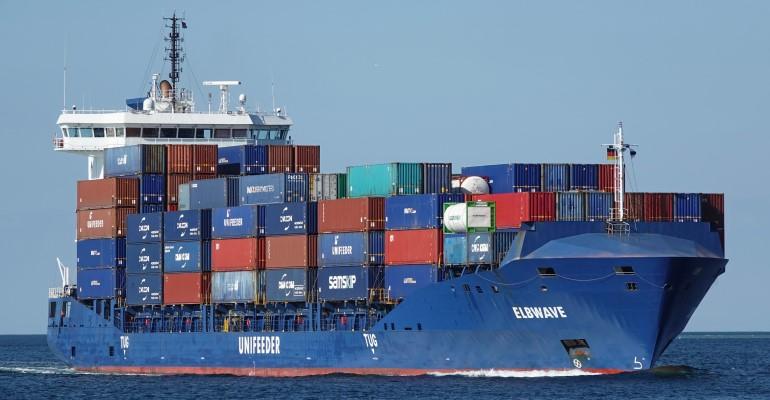The port said that as of 1 November 2022 it will deploy a system from Unifeeder and software companies Dakosy and Dakosy Interessengemeinschaft Hamburger Linienagenten (DIHLA) to strategically shift certain container movements within Port of Hamburg from road to feeder vessels.
The system will take care of customs handling and aims to relieve the strain on port infrastructure from transhipments, which totalled 3.3m teu in 2021. Unifeeder vessels will carry out container transfers between HHLA terminals CTA, CTT and CTB, and Eurogate, with the Süd-West Terminal due to be added soon.
Beyond the environmental benefits of cutting carbon emissions, the switch to using feeders for transhipment will insulate port operations from a worsening shortage of truck drivers.
Florian Pein, Area Director West and Central Europe at Unifeeder said it aims to switch 50% of its transhipment operations from truck to feeder in the longer term.
"As the largest feeder carrier in Northern Europe, we have up to 85 terminal calls per week in Hamburg and can therefore offer sufficient resources to transport additional containers within the port. We have been feeling the effects of the declining number of young truck drivers for years. This is increasingly leading to a serious lack of transhipment resources and leads to long waiting times in the Port of Hamburg," said Pein.
On the software side, Dakosy, DIHLA and Unifeeder created the framework for the process together, implementing a new module for integration into Dakosy’s Port Community System. Over a three-month test period, Unifeeder moved around 50 containers per month and proved the integrated customs handling processes in the system.
"Normally, an export customs procedure must be initiated as soon as a container is loaded onto a feeder ship. In consultation with the customs office, we have now created an integration function in both the IMP import platform and the EMP export platform that can be used to handle transhipments properly from a customs point of view," said Dakosy project manager Franz Schwanke.
A transhipment manifest was introduced to signal a request for a transhipment by feeder ship , leading to a change in custodian without initiating an export transaction.
"Ship-based transhipments can take several thousand containers off the road each year. Every container we can move via waterway means a reduction in CO2," DIHLA Managing Director Alexander Geisler said.
DIHLA covered the initial financing for the digital processes required to implement feeder transhipments.
Managing director Alexander Geisler said: "For us, ship-based transhipments in the port are the right way to go. The current real-life constraints have shown that there is a need for this. Now the groundwork has been laid for digital customs handling. This paves the way to provide relief for the road infrastructure in the port and, taking into account existing shipping capacities and digital infrastructure, to be more environmentally friendly and thus moving toward the future."
Copyright © 2024. All rights reserved. Seatrade, a trading name of Informa Markets (UK) Limited.
Add Seatrade Maritime News to your Google News feed.  |

